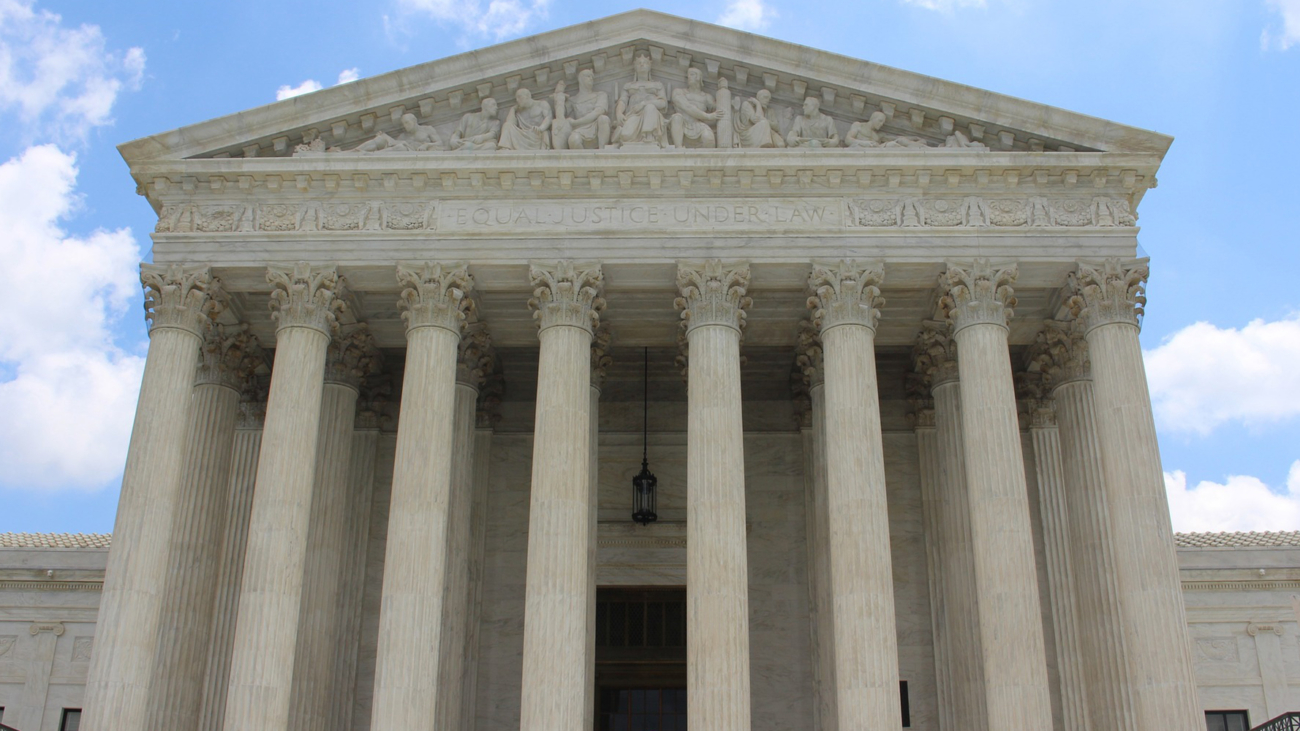WORTHLESS SERVICES: IS IT A WORTHLESS THEORY?
Andrew S. Feldman
Is it possible to allege that a claim for payment to a federal health care program is “false or fraudulent” pursuant to either the health care fraud statute (18 U.S.C. Section 1347) or the False Claims Act (FCA) when a defendant submits a claim for services that are rendered, but which are so deficient that they are, in essence, worthless services?
This article which addresses worthless services theories and which was recently cited in an opinion in State of Delaware v. Premier Healthcare Inc., et al. No. CA 17C-09-177-RRC (Del. Sup. Ct. June 14, 2018), addressing the validity of a state False Claims Act complaint alleging worthless services, will briefly address this question and some of the recent cases discussing its application in the context of FCA and health care fraud prosecutions.
Beginning of the “Worthless Services” Theory
The theory popularly known as the “worthless services” theory first gained attention in United States ex rel Mikes v. Strauss, 274 F.3d 687, 702 (2d. Cir. 2001), which described the theory as a “knowing request of federal reimbursement for a procedure with no medical value” in violation of the FCA.
In Mikes, relator, a pulmonologist, was hired by a group of physicians specializing in oncology and hematology services. Shortly after relator began providing his services, he raised concerns about the qualitative standards with which the defendant-physicians were performing spirometry tests. Spirometry is an easy-to-perform pulmonary function test used by doctors to detect both obstructive (such as asthma and emphysema) and restrictive (such as pulmonary fibrosis) lung diseases. The type of spirometers used by defendants measured the pressure change when a patient blows into a mouthpiece, thereby providing the doctor with on-the-spot analysis of the volume and speed by which patients can exhale.
Ultimately, the Second Circuit recognized that, “[i]n a worthless services claim, the performance of the service is so deficient that for all practical purposes it is the equivalent of no performance at all..,” but rejected this theory reasoning that:
At best, plaintiff urges that defendants submitted Medicare claims knowing they did not conform to the ATS guidelines. This allegation alone fails to satisfy the standard for a worthless services claim. The notion of presenting a claim known to be false does not mean the claim is incorrect as a matter of proper accounting, but rather means it is a lie. Defendants have presented such overwhelming evidence of their genuine belief that their use of spirometry had medical value, we conclude as a matter of law they did not submit their claims with the requisite scienter.
Mike, 274 F.3d at 701-02.
Subsequent to Mikes, several other federal courts have analyze this theory, including United States v. Villaspring Health Care Center, Inc., Civil Action No. 3:11-43-DCR (E.D. Ky. Dec. 19, 2011); Chesbrough v. VPA, P.C., 655 F.3d 461 (6th Cir. 2011).
In Chesbrough relators claimed that a group of radiologists violated the FCA when they billed Medicare for imaging services they performed for interpretation that were of such poor quality that they were essentially worthless, including certain “non-diagnostic” tests.
Evaluating this argument, the district court reinforced that, had “VPA sought reimbursement for services that it knew were not just of poor quality but had no medical value, then it would have effectively submitted claims for services that were not actually provided. This would amount to a “false or fraudulent” claim within the meaning of the FCA.” Chesbrough, 655 F.3d at 468-69. Therefore, because the relators alleged that “VPA knowingly submitted claims to the government for completely non-diagnostic tests,” the court found that relators had “sufficiently alleged a fraudulent scheme insofar as they have claimed that VPA billed the government for worthless tests.” Chesborugh, at 469. However, this small victory was not enough to stave off a dismissal of the complaint. The Sixth Circuit found that relators failed to plead the fraud with particularity pursuant to Federal Rule of Civil Procedure 9(b) given that they had “no personal knowledge” of any claims made to the government for non-diagnostics tests and failed to allege facts that “strongly support such an inference.” Chesborugh, at 472.
Nonetheless, in Villaspring, the district court denied defendant nursing home’s motion to dismiss the United States’ complaint premised on a worthless services theory of FCA liability. There, the relator alleged that defendant sought reimbursement from Medicare and Kentucky Medicaid programs for care purportedly provided to nursing home residents that was either non-existent or so inadequate that it was worthless. Villaspring, at *2.
Significantly, in denying defendant’s motion, the court discussed United States v. NHC Healthcare Corp., 115 F. Supp. 2d 1149, 1153 (W.D. Mo. 2000) and United States v. NHC Healthcare Corp., 163 F. Supp. 2d 1051, 1055-56 (W.D. Mo. 2001) (NHC Healthcare Corp II) extensively, reinforcing that:
Although it is true that a worthless services claim is not easy in the context of nursing home services, the defendants’ articulation of the situation is an exaggeration of what is required. It is not necessary to show that services were completely lacking; rather, it is also sufficient to show that ‘patients were not provided with the quality of care’ which meets the statutory standard.
Villaspring, at *3, citing NHC Healthcare Corp., 115 F. Supp. 2d at 1153.
The court then added:
[a]t some very blurry point, a provider of care can cease to maintain this standard by failing to perform the minimum necessary activities required to promote the patient’s quality of life. When the provider reaches that point, and still presents claims for reimbursement to Medicare, the provider has simply committed fraud against the United States.
Villaspring, at *3, quoting United States v. NHC Healthcare Corp., 163 F. Supp. 2d 1051, 1055-56 (W.D. Mo. 2001)
Based on the rationale in the NHC Healthcare Corp decisions, the district court found that whether or not defendant’s actions fell within the “grey area” beyond this “blurry point” was a fact issue, not proper for a motion to dismiss, and the United States had sufficiently plead facts to demonstrate that the line was crossed. Villaspring, at *4.
Recent Cases Addressing the Worthless Services Theory of Liability
More recently, at least three courts have reviewed this theory in False Claims Act cases and the Eleventh Circuit discussed its application in a health care fraud case.
- United States v. Omnicare, No. 12-CV-2431, (4th Cir. Feb. 21, 2014)
Because the Fourth Circuit limited its discussion of relators’ worthless service theory to a footnote and concluded that it would not separately address that theory, Omnicare, at *16, n.7, the decision in Omnicare is significant.
The relator in Omnicare was employed as a pharmacist for a drug repackaging operation, Heartland, owned by Omnicare, and was responsible for overseeing repackaging of drugs and regulatory affairs. During his employment, he alerted management when he believed that any repackaging of penicillin drugs, as proposed, might result in cross-contamination in violation of the Food & Drug Administration’s (FDA) current Good Manufacturing Practices (cGMP). He then drafted a memorandum articulating his specific concerns, but came to realize that management was not interested and so he resigned.
Subsequent to his resignation, he contacted FDA investigators who conducted two separate inspections of the repackaging facility and then sent a warning letter to Heartland notifying Heartland that its practice of repackaging certain penicillin drugs violated cGMPs, and therefore, caused the drugs to be “adulterated” in contravention of 21 U.S.C. Sections 331 and 351(a)(2)(B). Several years later, relator filed a qui tam action against Omnicare alleging that Omnicare repackaged drugs in violation of cGMPs, which rendered the drugs presumptively unsafe, and therefore, misbranded and adulterated, and therefore, not in their FDA-approved form and thus ineligible for coverage under government programs, including Medicare. One of the allegations in the complaint was that Omnicare was reimbursed for worthless services in violation of the FCA. Omnicare then filed a motion to dismiss the complaint for failure to state a false claim and relator appealed to the Fourth Circuit.
On appeal, the Fourth Circuit first addressed the relevant regulatory framework promulgated by the FDA governing the safety and effectiveness of outpatient drugs and the statutes governing coverage for outpatient drugs. Simply put, found that, if the FDA approved a particular drug through its pre-market application and approval process pursuant to 21 U.S.C. Section 355, then that drug was covered under the FDCA. Omnicare, at *13-14. Indeed, the court specifically concluded that “once a new drug has been approved by the FDA and thus qualifies for reimbursement under the Medicare and Medicare statutes, the submission of a reimbursement request for that drug cannot constitute a ‘false’ claim under the FCA on the sole basis that the drug has been adulterated as a result of having been processed in violation of FDA safety regulations.” Omnicare, at *15. The court also reasoned that, if it were to accept relators theory of liability, “we would sanction the use of the FCA as a sweeping mechanism to promote regulatory compliance,” when the FDA already has established several remedial processes to promote and protect safety. Id. at *17.
Misbranding Prosecution
So, while the Fourth Circuit made it very clear that FDA safety violations should not form the basis for FCA actions, doesn’t the Department of Justice have a substantial federal interest in punishing organizations that introduce “adulterated” drugs into interstate commerce? Should the DOJ prosecute Omnicare and/or its executives, for misbranding pursuant to 21 U.S.C. Sections 331 and 351(a) (2)?
2. United States v. Associates in Eye Care, No. 13-CV-00027 (Feb. 4, 2014 E.D. KY.)
According to the Government’s complaint, an optometrist with an ownership interest in Associates in Eye Care (AEC) routinely performed unnecessary, albeit “worthless,” eye exams on nursing home patients. In fact, on at least eleven (11) occasions, the optometrist had consulted 100 patients in an eight (8) hour day using diagnosis codes which assume that those eye-exams cannot be performed in less than 15 minutes.
Defendant moved to dismiss the complaint arguing that the United States had not sufficiently pleaded a “false” claim. Addressing defendant’s argument, the court first highlighted that courts recognize a “worthless services” theory when a plaintiff shows that the patients lacked the quality of care required by a statutory standard. Associates in Eye Care, at 13. In addition, the court found that the question of whether a defendant’s actions fall within the “admittedly grey area” discussed in Villaspring is a fact-intensive inquiry which is not a proper question for the court to address on a motion to dismiss. Id. at 13.
Applying this rationale to the worthless services alleged by the government, that the optometrist “spent less than four minutes with each patient on that day, which would have resulted in a very superficial, or worthless, examinations,” the court concluded that the government “clearly” met the requisite standards for pleading a worthless services claim under the FCA. Id. at 14.
3. United States ex rel. Vanessa Absher v. Momence Meadows Nursing, No. 13-1886 & 13-1936 (7th Cir. Aug. 20, 2014)
In Momence, relators, two former nurses employed at Momence, alleged that Momence provided continuous, non-compliant, and systematically violated Medicare and Medicaid regulations concerning the duties of personnel at the facility. Momence staff also ignored severe cleanliness issues, concealed at least one scabies outbreak, and patient accidents.
At trial, the jury was specifically instructed on a theory of worthless services as follows: “services can be worthless, and claims for those services can, for that reason, be false, even if the nursing facility in fact provided some services to the patient. To find the services worthless, you do not need to find that the patient received no services at all.” Momence, at *17. The court then offered an example: if Uncle Sam Paid Momence 200 bucks and they only got $120 worth of value, then Momence defrauded them of $80 worth of services.” Id. at *17. The jury then awarded compensatory damages of more than $3 million, which after trebling totaled $9 million.
On appeal to the Seventh Circuit, the court concluded the district court’s instruction was erroneous, reasoning that, in order to allege worthless services, “the performance of the service must be so deficient that for all practical purposes it is the equivalent of no performance at all. It is not enough to offer evidence that the defendant provided services that are worth some amount less than the services paid for. That is, a diminished value or services theory does not satisfy this standard. Services that are ‘worth less’ are not worthless.” Id. at 18. In closing, the court noted that “a worthless services may be evidence that a claim for reimbursement is false under a false certification theory,” but did not address its viability as a separate theory because relators failed to establish that the services provided by the defendant were “truly worthless.” Id. at 18-19. (NOTE: , at trial, relator testified that her mom received care at Momence and appeared satisfied with the care she received)
4. United States v. Houser, No. 12-14302 (11th Cir. June 19, 2014)
Lastly, in Houser, the Eleventh Circuit affirmed the health care fraud conviction of George Houser, a graduate of Harvard law school and the owner and operator of several skilled nursing facilities in Rome, Georgia. On appeal, Mr. Houser’s counsel argued that the conviction should be reversed since it was premised on a “worthless services” theory of health care fraud which is more appropriate in the context of civil False Claims Act prosecutions and that, for this reason, the health care fraud statute as applied to Mr. Houser was unconstitutionally vague.
The Court rejected these arguments reasoning, in part, that the “district court’s order of conviction also rested, at least in part, on the facilities’ failure to provide necessary services,”for example, residents never received the medications that they were supposed to have, residents went without diapers and medical care for their wounds,laboratory services were not performed, and residents were not transported for dialysis or provided with physical therapy. Houser, at *23-34.So while the government reinforced that George was the modern day equivalent of a skilled nursing home slum lord, cutting corners and providing substandard, essentially “worthless care,” part of the district court’s determination was based on George’s wholesale failure to provide any of the services for which he billed or caused to be billed to government health care programs and private insurance companies. Id. at *23-25.
Thus, the Court properly resisted the temptation to directly address, what arguably was, the most significant issue in this case: whether or not the government could have prosecuted Mr. Houser for a violation of the health care fraud statute under a “worthless services” theory when Mr. Houser billed Medicare and private insurance companies for services that were deficient, inadequate, and otherwise substandard. And, after Houser, the question remains: if George Houser (or anyone else) provides services that are simply “worthless” because they are substandard, inadequate, or, in some cases, downright offensive, then can the perceived worthlessness of those services provide the government with the legal basis for prosecuting a provider or supplier for a violation of the health care fraud statute?
Conclusion
As illustrated, more than a decade ago, Mikes provided a roadmap for potential worthless services theories, underscoring that services that are so deficient that they essentially have no medical value are worthless. Yet, the courts, until recently, had not thoroughly discussed its application in the context of qui tam actions or health care fraud prosecutions. Worthless services had been largely ignored or substantially underutilized. Now, courts like Omnicare and Houser still refuse to seriously consider or evaluate the contours of the worthless service theory and the Seventh Circuit vacated a judgment founded on worthless services in Momence. So is the worthless services theory worthless? In this authors view, it is unquestionable that Rule 9(b) makes it difficult to plead worthless services and to identify the “admittedly grey area” where services are worthless, not worth less, but, as demonstrated in Associates in Eye Care, Chesbrough, and Mikes, worthless services is still a viable theory of liability. In dicta in Momence, the Seventh Circuit also suggested that worthless services might be evidence of a false certification under the FCA and, by comparison, might qualify as evidence of fraud in a health care prosecution alleging that services were medically unnecessary. As such, it is likely that relators and the government will continue to test the limits of the worthless services theory before different Courts of Appeals.






